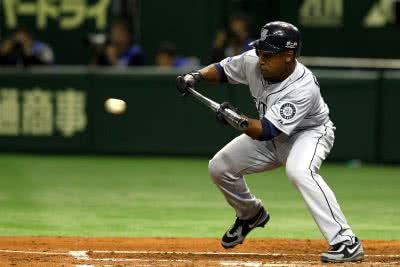Signification du mot bunt en français
Que signifie bunt en anglais ? Découvrez la signification, la prononciation et l'utilisation spécifique de ce mot avec Lingoland
bunt
US /bʌnt/
UK /bʌnt/

Verbe
1.
bunter
to hit a baseball lightly with the bat, without swinging it, so that the ball goes only a short distance
Exemple:
•
The batter decided to bunt to advance the runner.
Le frappeur a décidé de bunter pour faire avancer le coureur.
•
He successfully bunted the ball down the third base line.
Il a réussi à bunter la balle le long de la ligne de troisième base.
2.
donner un coup de tête, heurter
to push with the head or horns
Exemple:
•
The goat tried to bunt the fence with its head.
La chèvre a essayé de donner un coup de tête à la clôture.
•
The ram would often bunt trees in the field.
Le bélier avait souvent l’habitude de donner des coups de tête aux arbres dans le champ.
Nom
1.
bunt
a lightly hit baseball that goes only a short distance
Exemple:
•
It was a perfect bunt, placing the ball just inside the foul line.
C'était un bunt parfait, plaçant la balle juste à l'intérieur de la ligne de faute.
•
The coach called for a bunt in the ninth inning.
L'entraîneur a demandé un bunt en neuvième manche.
2.
coup de tête, poussée
a push or thrust with the head or horns
Exemple:
•
The ram delivered a powerful bunt to the tree.
Le bélier a donné un puissant coup de tête à l'arbre.
•
He received a playful bunt from the young calf.
Il a reçu un coup de tête joueur du jeune veau.